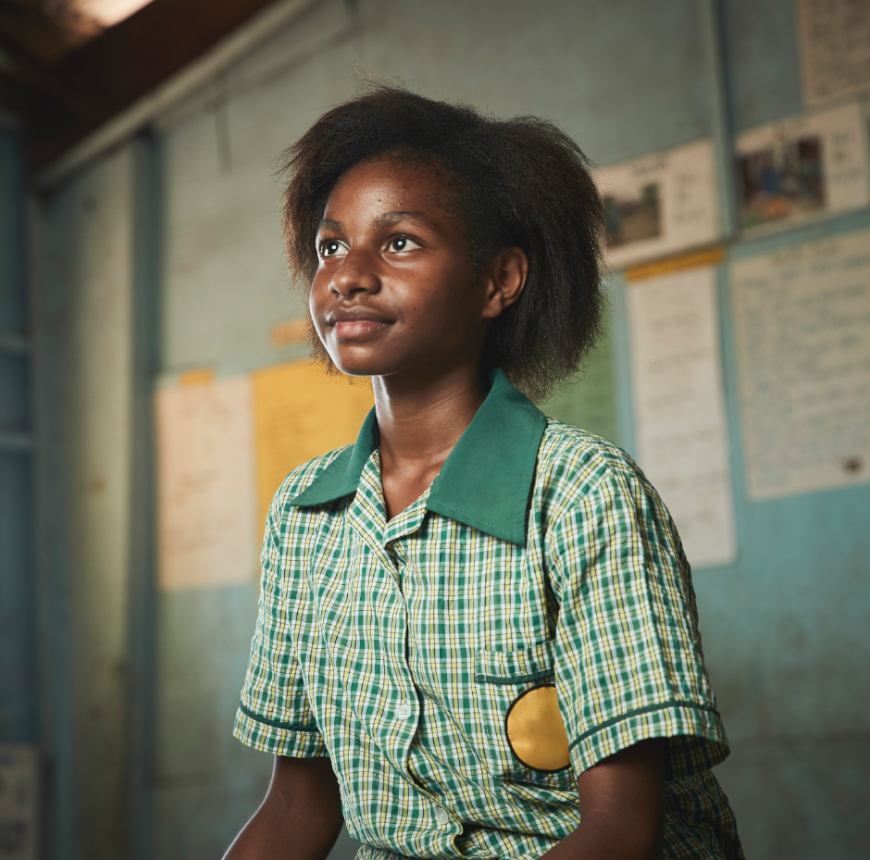Media Centre - 19 November 2021
COP26 has failed to recognise the urgency of the climate crisis – especially for girls

The following statement can be attributed to Susanne Legena, CEO Plan International Australia:
“The world’s most climate vulnerable countries – particularly Australia’s closest neighbours in the Pacific – have been forced into accepting an agreement which simply will not be enough for communities already experiencing devastating climate change, with children and girls the hardest hit.
We are disappointed that leaders have failed to step up on climate finance, which is vital to supporting communities on the frontline of the crisis. A target of $100 billion a year – set 12 years ago, and now insufficient to meet the needs of the most vulnerable communities – has still not been met.
The pledge by developed countries to double financing towards adaptation does not go far enough to address the urgent needs of the most climate vulnerable countries, to adapt to extreme weather events they face now and in the future. And on the vital issue of finance for loss and damage, a major priority for low-income countries and small island developing states coming into COP26 and critical to advancing climate justice, developed countries like Australia failed to deliver and commit.
COP26 also presented an opportunity to prioritise and advance quality climate education – crucial in preparing children and young people for the crisis they face – and youth engagement particularly through the review and enhancement of the Doha Work Programme on Action for Climate Empowerment (ACE) and the high-level Ministerial event on Climate Education. Unfortunately, the commitments made during the ministerial event were weak, and Australia was a no-show.
Children and young people themselves have been calling on world leaders to invest urgently in climate education. In a Plan International survey of more than 1,800 adolescents and youth from 37 countries, an overwhelming majority (84%) of participants said their government’s efforts to include them in policies to tackle the climate emergency is insufficient, while only 6% thought they are about right. About one in five (18%) rated their climate change education as poor or very poor.
We welcome commitments under the new Glasgow Work Programme on ACE for an in-session dialogue on children and youth engagement, youth participation in official delegations and an annual youth-led forum. Unfortunately, the Glasgow Work Programme approved at COP26 does not sufficiently recognise the disproportionate impact of climate change on girls’ education or include key actions to support girls’ access to quality education. Negotiators also removed key rights-based language from the text.
Despite our efforts with civil society, it still does not recognise the power of gender-transformative education as a key pathway to climate justice. It also does not sufficiently include civic engagement, green skills, life skills, policy processes and activism and crucially, it does not recognise a rights-based approach.
There were also big issues regarding inclusion at COP26. A combination of COVID-19 restrictions, visa issues, vaccine inequality, and high accommodation costs, as well as significant restrictions on civil society’s access to key decision-making spaces, meant that COP26 was one of the most exclusive and inaccessible to date. Many critical negotiations and events – not least negotiations dealing with public and youth participation – were inaccessible to those with the most at stake.
It is therefore no surprise that the final outcome documents fail to reflect the urgency of the moment.
COP26 has kept 1.5 degrees in sight and alive, but only just. For the world’s most marginalised children and girls, the difference between 1.5 and 2 degrees warmer will be stark.
It is vital that all countries come to COP27 in Egypt with updated plans, new energy and willpower to make 1.5 and climate justice a reality.”
Girls’ and climate education is a key pathway to achieving this, and must be prioritised throughout the UNFCCC processes over the coming months. Plan International Australia continues to call on governments – including the Australian government – to support the youth-led statement of recommendations for gender transformative education for climate justice, both through climate policy and process and through the Australian Aid program. You can sign in solidarity here.
Media contacts

